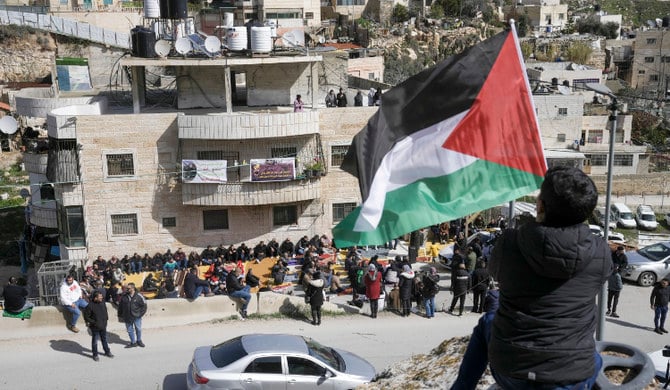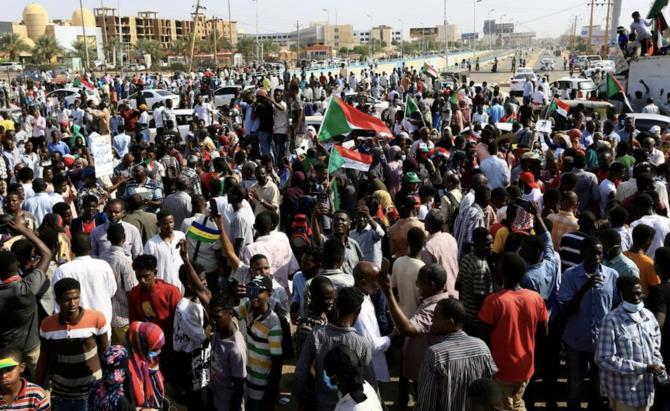
It was inevitable that after a decade of tumult, the next phase of Libya’s pursuit of a sovereign civil state could come only through tenuous compromises and complex deals between diametrically opposed interests. To most observers, such shaky foundations doomed any prospect of elections, and progress toward a stable post-conflict situation.
The primary goal for most actors was never to allow Libyans to deliver a decisive mandate stripping them of their power, influence, and lucrative access to Libyan resources and revenues. Even worse, several actors continue to use this influence, and intimidation via force of arms, to escape culpability for war crimes, crimes against humanity, and trafficking in persons, arms, and contraband.
The inexplicable inclusion of malign actors in the electoral process afforded them opportunities to derail progress, claiming their participation was evidence that they too wanted the elections to proceed. Whether they would accept the results, however, was entirely another matter. Ultimately, the leader of the House of Representatives, Aguila Saleh, will poison the well by ramming through a legislative handicap for warlord Khalifa Haftar, disguised as electoral law —dealing a decisive blow to any hopes that the elections will proceed as planned.
Given how events in the election saga spiraled out of control last month, it is essential to avoid yet another deadline. If it was unclear then, it should be now. Simply picking another arbitrary date for the elections without addressing underlying woes risks a repeat of the events that ultimately dashed the hopes of nearly 3 million voters and sank Libya deeper into hopelessness.
The last thing Libya and Libyans need is a dictated electoral timeline that pays little heed to what must happen now to make the vote possible, and also risks sending close to half the population to the polls with no credible options to choose from or confidence that results will be respected, and with no security infrastructure in place. Furthermore, there are no safeguards to ensure the integrity of both the presidential and parliamentary elections, nor do proper governance systems exist to implement the results, or even settle the inevitable disputes that will emanate from them.
Surprisingly, in the aftermath of that year-end debacle, there were immediate calls to postpone the vote by about a month. It was as if the mounting pile of electoral woes would simply vanish, and not create new tensions as Jan. 24 crept closer. There was, and still is, no urgent examination of what went wrong, except for the back-and-forth mudslinging between all the now illegitimate and discredited political bodies and personalities, as each tries to shift blame for what happened in December. Meanwhile, malign actors have taken advantage of the election chaos to consolidate their recent gains or intimidate the opposition.
Given how events in the election saga spiraled out of control last month, it is essential to avoid yet another deadline.
Hafed Al-Ghwell
Saleh’s bypassing of legislative procedures to enact a controversial electoral law full of flaws aimed at preventing elections from taking place ended up with an inevitable delay, resulting in his remaining as leader of the parliament. Had the elections taken place anyway, it would have been according to rules he set, while being a candidate himself. That is just one of numerous examples of why holding elections this year, or even later, will be possible only in an almost paradoxical way — that is, if Libya"s political elites can continue manipulating the process to prolong their grip on power.
Other actors are trying to create a new roadmap for elections on another make-believe date in June, with “guidance” from the UN. From the UN perspective, elections are the only way state institutions can regain their credibility and legitimacy. Ironically, the UN itself lacks these same attributes. Its view is flawed because it puts the cart before the horse. Libya is fragmented to the point where perceived institutional gains in one part of the country are construed as a loss in other parts.
It is highly unlikely there will be any elections this summer, especially under a controversial electoral law that the House of Representatives has refused to repeal or amend. Proposing elections this summer reflects an almost infuriating refusal to acknowledge the glaring vulnerabilities in existing processes and the criminal forces monopolizing the public stage in Libya.
Instead, arbitrary deadlines must give way to constructive engagement and strict conditions aimed at improving institutional capacities, and preserving the integrity of those parts of Libya’s judiciary tasked with resolving electoral disputes. For instance, the international community must not endorse any move to unseat the interim government while it remains integral to keeping the state functioning in what will probably be an extended period of political malaise, bordering on renewed conflict.
Unfortunately, the signs are not promising that the international community is eager to learn from lessons of the recent past, and tailor its interventions to better support sustainable outcomes that are not detrimental to the average Libyan. So far, the most concerning development, in addition to the sad attempts at legitimizing either the thugs in suits or thugs with weapons as guardians of Libya’s future, is the shifting perspective on the persistent presence of foreign fighters and mercenaries. The UN is suggesting that these groups may be necessary to maintaining a ceasefire, rather than being corrosive threats to Libyan sovereignty.
In addition, the lack of appetite for dealing with well-known vulnerabilities by simply insisting on new roadmaps is not going to accelerate the realization of Libya"s democratic aspirations. After all, most actors seem more willing to sideline or subvert the will of Libyans by promising much but accomplishing little if anything. For now, and in Libya"s near future, the only progress to come out of feverish attempts to restage the vote will only be repeated mirages, quickly erased by mercurial interests, and actors invested in perpetuating the status quo.
If an election magically takes place in the next few months, the only result will be that Libyans will simply elect their next dictator, who will never give up power again.
Hafed Al-Ghwell is a senior fellow with the Foreign Policy Institute at the John Hopkins University School of Advanced International Studies. Twitter: @HafedAlGhwell
Disclaimer: Views expressed by writers in this section are their own and do not necessarily reflect Arab News" point-of-view












